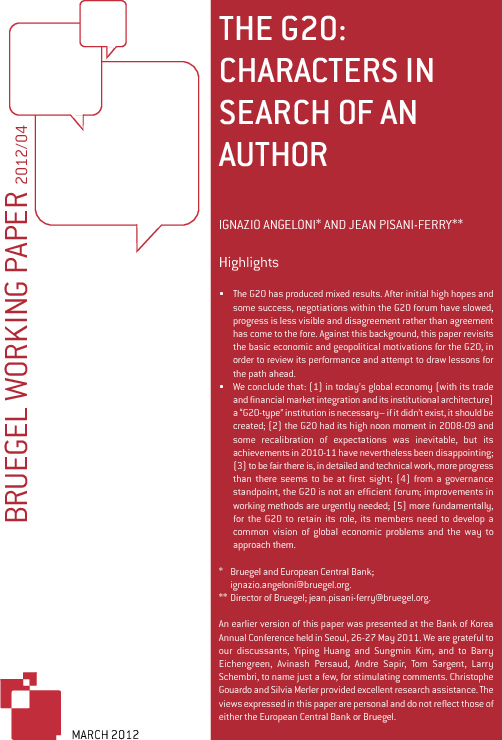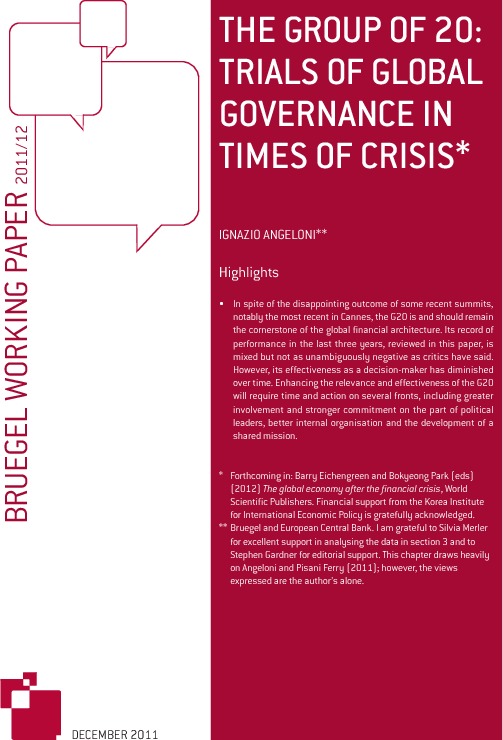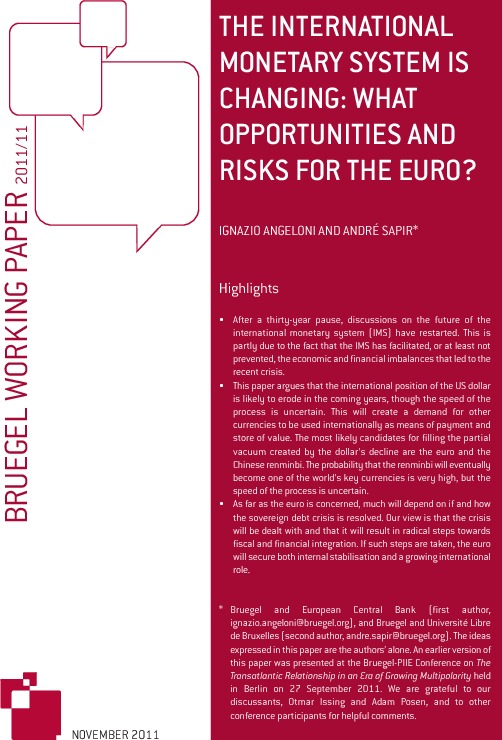Former scholars

Ignazio Angeloni
Expertise: Macroeconomics, central banking, financial markets and the economics and politics of European integration CV: Download CV
Ignazio Angeloni joined Bruegel as a visiting fellow in June 2008 and is currently a Member of the Supervisory Board of the European Central Bank. He has previously been the Director General - Financial Stability, Head of ECB preparation for the SSM, and Adviser to the ECB Executive Board on European financial integration, financial stability and monetary policy. He was the coordinator and contributor to the the G20 monitor.
Before that, he was the Director for International Financial Relations at the Italian Ministry of Economy and Finance.
He holds a Ph.D. in Economics from the University of Pennsylvania. His research interests include macro economics, central banking, financial markets and the economics and politics of European integration.



